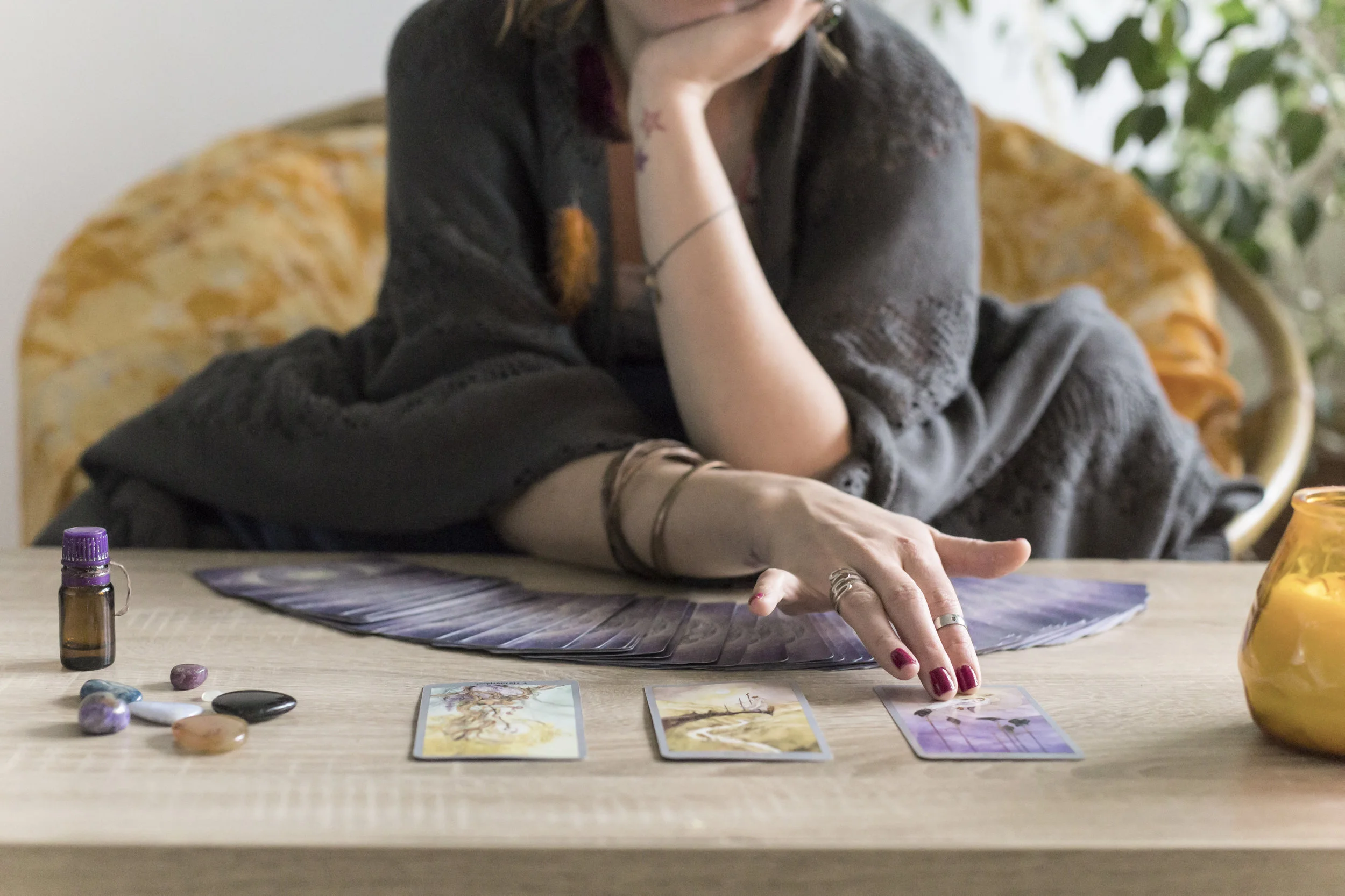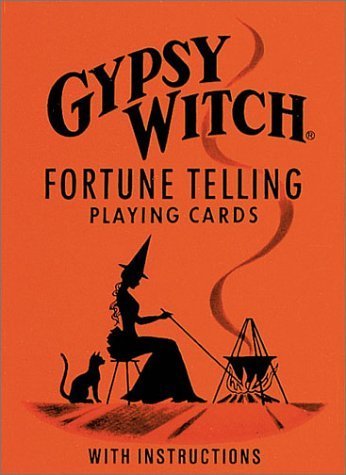Unexpected Cards – The Magical Processes of Divination
Unexpected Cards
The Magical Processes of Divination
Tarot, and cartomancy in general, is enjoying worldwide popularity right now. Some folks think this is a measure of the high level of uncertainty and despair in the world, coupled with the low level of available mental health services. There is a lot of speculation as to whether practices like tarot offer true mental health benefits or actually make things worse. I have seen evidence for both.
A great tarot reading, or a meaningful tarot practice, can bring understanding, balance, hope and healing in any situation, but only if the cards’ messages are interpreted in a way that gives the seeker some responsibility for their own contemplation, healing and actions. Those who come to the cards only to hear a pretty story of their future fortune are often disappointed by the reality of what tarot offers best; the opportunity to take a hard look at oneself.
That tarot is trending right now offers us a level of accessibility and acceptability we have never enjoyed before. The downside is how easily esoteric traditions can become muddied as more swimmers enter the water. I’m sure every generation of tarotists has felt concern that their tradition was being misunderstood or watered down. Yet, tarot has survived the past few hundred years more-or-less intact. I am sure there will always be traditionalists who preserve the ancient truths, and iconoclasts who try to expand those truths in new ways.
The best thing about the tarot explosion is the number of people trying formal divination for the first time.
Chances are we were all exposed to some kind of divination as children; twisting apple stems or bouncing seeds on our hands to reveal the initial of our future spouse. In elementary school, we folded paper to make “fortune-tellers” that fit over our fingers and proffered the hilarious fortunes we made up, whispering together during recess. When a piece of silverware was dropped on the floor during dinner preparation my aunt interpreted it as a predictor of an unexpected dinner guest.
When you think back, do you remember divination games in your family, or on the playground?
When did formal divination first enter your life?
My first official cartomancy was with the Gypsy Witch Fortune Telling Card Game, when I was eight. I remember how clearly the cards spoke, and how uncannily true my first reading felt. I had the same feeling more than a decade later when I first started playing with I Ching. Yet, I resisted tarot.
I think the reason I resisted tarot, even while embracing I Ching, is that I had seen so many people take tarot so literally, so fundamentally. I scoffed at people who would believe something they thought a piece of cardboard told them over obvious logic.
At that point I had yet to understand just how logical tarot could be.
Today I am a fulltime professional diviner with a twenty-five-year career behind me. I hope I am lucky enough to have another twenty-five years of professional tarot in front of me.
As I contemplate the magic of divination and the many ways I have witnessed it in my life and work, I come to a few conclusions.
First, although tarot is not the only awesome tool of divination available, it is by far my favorite. It is my favorite because of its art, structure, archetypes and history, as well as the way it finds its way into popular culture in every generation.
Tarot functions as a book of spiritual wisdom as well as a fortune-telling device. Each tarot card teaches us a spiritual truth which we can access in study and meditation, as well as in divination.
When we consider how poignant and helpful divination can be, we have to consider two sticky questions.
First, how in the world does divination work?
Second, how can it be that once in a while divination seems to reveal wrong answers- either describing a current situation differently that we see it, or predicting an outcome that doesn’t come to pass? And, if the answers seem to us to be occasionally wrong, why do we believe divination helpful?
I can’t begin to say what power drives divination. Some tarotists ascribe actual personality to their card decks. I definitely don’t do that, nor do a believe an entity, either angelic or demonic, determines which cards we see. Although,I do believe that Spirit can speak through the cards.
For me, the power of random token divination comes from the magical energy of random. The power of tarot in specific comes from the third eye, or brow chakra, which is the seat of eyesight, imagination and psychic ability. As we see the card image our imagination is inspired, and our psychic ability is engaged.
I fully admit, however, that my explanation of why and how things work is no more verifiable than anyone else’s explanation that might be more or less fanciful than my own.
Now, the bit about ‘wrong divination’.
We have an expression in tarot. “The cards never lie”. Yet, the cards can speak in so many ways that sometimes the reader can get it wrong.
When the cards come up to describe the past or the present, we might sometimes be surprised that the cards show up the way they do. We might be processing something that has happened, or is happening, in a particular way, and the cards that come up might show us something different.
We might look at those unexpected cards and say that they are ‘wrong’.
We all love the readings that happen when the cards come up and reflect exactly what we are thinking and the way we are feeling. Yet, if the cards come up differently than expected, there is real value in working to figure out why they are appearing as they are, and what message they have for us.
When we allow it, this process of introspection around unexpected cards can reframe our perspective, help us heal from the past and give us helpful information about where we are.
Unexpected cards that describe the past or present should not diminish the reading or cause us to reject the wisdom of the cards. Rather, those unexpected cards can become the focal point and lesson of the reading.
When we see cards that appear to predict the future, we can’t necessarily judge them against a backdrop of what is expected, because we aren’t there yet.
Of all divinatory operations, it is the prediction of the future that can be the most amazing, or disappointing. Ask any meteorologist or financial forecaster; predicting the future can be challenging for everyone!
Yet, it wasn’t our ability to predict the future that got most of us hooked on divination. What got me hooked, and what I believe got most of us hooked, was the way divination showed us our current situations, and helped us process our past.
When we use tarot to predict the future, we can always interpret the cards that appear as energies that will be available to us in the future, or things that we need to keep in mind going forward.
When tarot predictions are uncannily accurate, as they often are, we might start to believe that every single thing we think we see in the cards will come to pass.
Divination is probably most helpful when we keep an open mind and use that open mind to contemplate the messages and advices we have received.
Contemplation, as opposed to blindly receiving information without question or process, is also part of the magic of divination.
A good professional reading will help you contemplate what is going on in your life and will guide you to consider what is most important. When you read for yourself, your divination process will be most effective if you take the time to puzzle out the cards you receive, rather than quickly accepting or dismissing them as right or wrong. From my perspective, every card we receive in a reading is the right card. We just need to figure out the way in which it is right.

